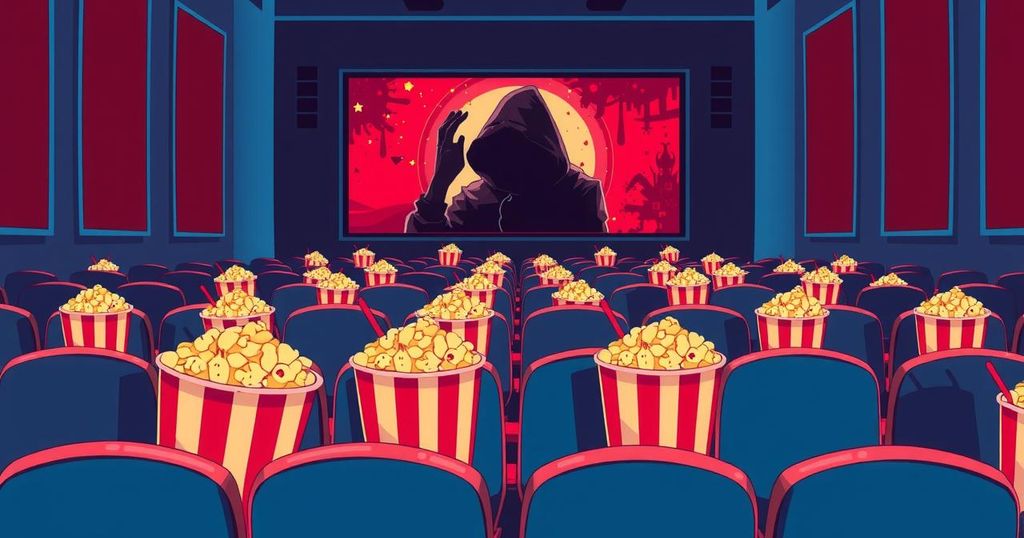*Ne Zha 2*: A Cultural Phenomenon Reshaping Chinese Cinema
*Ne Zha 2*, directed by Yang Yu, is a groundbreaking animated film that has shattered box office records in China, earning 14.7 billion yuan and surpassing Pixar’s *Inside Out 2*. The film reflects contemporary issues faced by Chinese society while also incorporating elements of national pride and anti-American sentiment, prompting widespread acclaim. Its release coinciding with the lunar new year holiday contributed to its immense popularity, positioning it as a symbol of China’s cultural resurgence.
The recent animated feature, Ne Zha 2, has captured divine attention in China and shattered global box office records. Directed by Yang Yu, the film, influenced by Chinese mythology, tells the tale of Ne Zha, a demon-child raised by humans on a quest to restore his friend, the dragon prince Ao Bing. The movie’s riveting graphics and riveting battle scenes have drawn millions of Chinese viewers to theaters, especially during the Lunar New Year holiday, resulting in an astounding 14.7 billion yuan (£1.6 billion) in box office revenue, marking it as China’s top-grossing film historically.
Ne Zha 2 has also achieved global recognition as the highest-grossing animated film, surpassing previous records set by Pixar’s Inside Out 2. This film signifies a departure from the traditional patriotic narratives prevalent in recent years in Chinese cinema. The 2021 film The Battle at Lake Changjin, which showcased Chinese soldiers’ valor during the Korean War, finds itself second to the animated triumph. Similarly, Wolf Warrior 2, a 2017 film, is now the third entry in box office rankings, demonstrating a shift in viewer preferences.
According to Yu Yaqin, a prominent film critic in Beijing, while patriotic themes remain relevant, Ne Zha 2 resonates with broader audiences. The backdrop of economic difficulties and rising youth unemployment has fostered a sense of dissatisfaction among the populace, making Ne Zha’s rebellious spirit against injustice and authority relatable. The character’s assertion, “My fate is controlled by myself, not by God,” speaks to many struggling under current societal pressures.
The film additionally incorporates elements appealing to national pride, with its perceived anti-American symbols sparking discussions among viewers. The visual depiction of white jade in the jade palace, linked by some to the White House, illustrates the layered narrative present in the film.
Timing contributed to Ne Zha 2’s success, as its release coincided with the lunar new year—a period when families typically frequent cinemas. With local governments and businesses promoting the film vigorously, it has been embraced as a manifestation of Chinese “guoyun,” or national destiny. In an essay for ChinaTalk, Afra Wang remarked that amidst post-pandemic recovery, citizens find solace in cultural symbols, encapsulating personal struggles within a larger successful narrative, thus validating the film’s appeal.
The movie’s influence extends beyond box office success; it has sparked initiatives across various sectors. Businesses have seized the opportunity to capitalize on the film’s popularity, offering incentives like discounted services to those who attend screenings. Minister Wang Wentao commended the film’s role in reviving cinema attendance and consumer spending in China during a recent political conference.
While Ne Zha 2 soars within China, its global prospects remain uncertain, primarily due to its cultural references and the necessity for familiarity with Chinese mythology. Taiwan, sharing historical ties, could be a potential market; however, restrictions on Chinese films may impede the film’s release there. Despite this, Ne Zha 2 is set to premiere in the UK on March 21, and many in China acknowledge the film’s success as a testament to the nation’s cultural evolution and self-determination.
In summary, *Ne Zha 2* signifies a remarkable shift in Chinese cinema, marking a departure from patriotic narratives towards a story that resonates with broader societal concerns. The film’s unprecedented box office performance, both nationally and internationally, underscores its cultural significance amidst China’s evolving socio-economic landscape. As audiences reflect on themes of self-determination and national pride, *Ne Zha 2* may well herald a new era for animated storytelling in China.
Original Source: www.theguardian.com




Post Comment